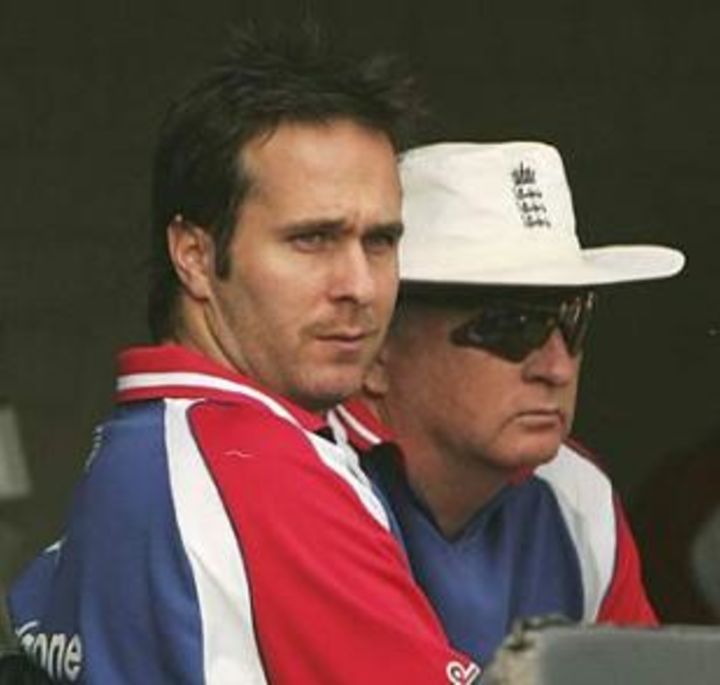A father figure to the new India
Fletcher must take on a mentor's role while also quickly understanding the country and its players

It is not always that a student recommends his teacher for a job. It can be tricky, because the student, widely travelled and successful himself, may have acquired skills that actually make him better; and the halo he creates around his teacher may not be universally seen. But Gary Kirsten, who has been an honourable man, recommended Duncan Fletcher and the BCCI said, "Yes, we do!"
Though a coach neither scores runs nor takes wickets, Fletcher comes with an impressive track record and is widely respected by captains he worked with. Nasser Hussain, a voice the cricket world can trust, pays him huge compliments, and it is interesting that the only people who were less than effusive were those watching from more than a few hundred yards away. As someone who has been in residence in that suburb of a cricket ground for a long time, I can tell you that we do not always know the dynamics of what is afoot. I'd rather listen to a captain's or a player's view on a coach they have worked with.
The challenge facing Fletcher is very different from the one he faced when he had the job in England in 1999. England then had sunk as low as they could, and when that happens, self-belief and confidence can exit quite quickly. The only way, really, that England could go from there was up and Fletcher walked alongside two fine captains in Hussain and Michael Vaughan (who also pays him handsome tribute). Winning the Ashes in 2005 was then English cricket's highest point for over 20 years, maybe more.
But now he comes to India, culturally and attitudinally very different, but also enjoying their best standing ever in the world game. India are a side full of confidence but need to sustain performance in a period that will also see a fairly epochal transition. Three of their best batsmen and their best bowler are in the latter stages of their careers and a new generation is on its way. But it is a generation that has not been shaped by Ranji Trophy cricket but by 20- or 50-over cricket. It is an extraordinarily rich generation, with the bulk of the money having arrived through half-hour performances. They will need to be mentored through the longer form, and that is where I believe Fletcher's greater role will lie: in being a father figure to a new generation of cricketers, who he must, very quickly, begin to understand.
This is a very different generation from any he may have seen. They, certainly the batsmen, are extraordinarily gifted, are confident, even brash, and the subject of more adulation than in any other land. But they are mercurial and temperamental too, periods of excellence mingling with bouts of surprising barrenness. But Kirsten showed that a soft approach works very well with them; the how-can-I-help-you rather than the this-is-how-you-do-it approach. Eventually when cricketing pedigree is unquestioned, it is the person you are, rather than the knowledge you possess, that determines success. That will be Fletcher's test; the person he is is more important than the teacher he is.
He will discover too that in India it is important to be liked, to be seen as a "nice" man, as Sourav Ganguly frequently referred to John Wright in spite of their many disagreements. Many tough coaches around the world talk about how they are not there to be popular but to be effective. I believe that is fine for a leader, which is what the captain is, but not quite so for a mentor, who must necessarily play the role of the caring elder; which is why my first reaction to the Fletcher appointment was that he must be able to embrace and understand a country and its people.
The good thing for Fletcher, though, is that India have a settled and excellent captain. Both Vaughan and Hussain have said that Fletcher made it clear that it was the captain's team at all times, and that in a disagreement over selection, for example, the captain's word counted for more. Dhoni will like that because now, more than ever before, this is his team. Taking India to No. 1 in the Test ranking was only the last leg of a relay started by previous captains, but winning the World Cup was about his team.
On paper this is a good appointment, but what looks good on paper is merely the first step to success. As an old-time man manager Fletcher will know that.
Harsha Bhogle is a commentator, television presenter and writer. His Twitter feed is here
Read in App
Elevate your reading experience on ESPNcricinfo App.